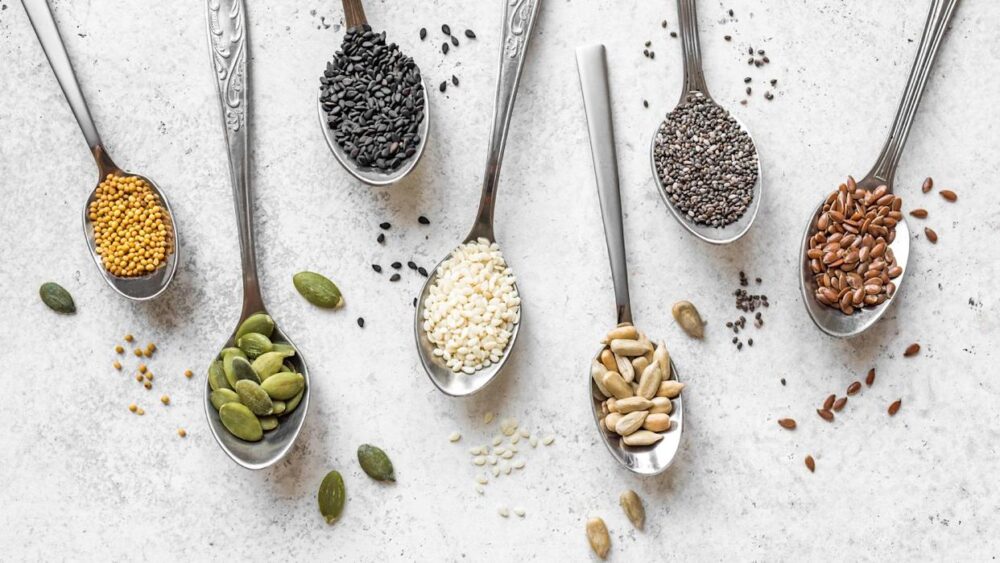If you’re aiming to hit your protein goals, don’t overlook a small but mighty source: seeds! Seeds are versatile and loaded with protein and other nutrients. Dietitians say you should eat more of them, whether you sprinkle them on salads or yogurt, blend them into a smoothie or just pop a handful into your mouth.
“Seeds are nutrient-rich powerhouses,” says Adiana Castro, M.S., R.D.N., a metabolic dietitian and owner of Compass Nutrition in New York City. “They are packed with protein, fiber, healthy fats, antioxidants, vitamins and minerals.”
Plant-based proteins, including seeds, “have a bonus effect because they contain both protein and fiber,” Castro says. These two nutrients promote blood sugar control, regulate appetite and amplify satiety to help you stay full longer. They’re also low in saturated fat and feed the good bacteria in the gut microbiome, she adds.
Along with packing a protein punch, seeds are generally rich in a range of vitamins and minerals, says Lena Beal, M.S., R.D.N., L.D., a spokesperson for the Academy of Nutrition and Dietetics. Many seeds also contain the plant compound lignans, which research shows may lower your risk of heart disease, breast cancer, menopause symptoms and osteoporosis. They’re also a source of phytosterols, which have been shown to lower cholesterol and have anti-inflammatory and immune system-boosting benefits. If that wasn’t enough, seeds contain variety of antioxidants and many are also rich in omega-3 fatty acids, both of which have anti-inflammatory properties.
If protein is what you’re after, focus on the six seeds below, which contain the most protein.
Hemp seeds
Hemp seeds have a mild, slightly nutty flavor and come from the Cannabis sativa plant (one that’s different from the marijuana-producing cannabis plant). Hemp seeds contain minimal amounts of THC, so they won’t give you a buzz, but they will give you a good amount of protein.
Three tablespoons of hemp seeds have about 9.5 grams of protein and 166 calories, according to the U.S. Department of Agriculture (USDA). They’re a complete protein, so they have all nine essential amino acids that your body can’t make on its own, says Rhyan Geiger, R.D.N., a registered dietitian focusing on plant-based nutrition.
Hemp seeds are also high in polyunsaturated fatty acids, including omega-3s, omega-6s, and vitamins E, D and A, which offer antimicrobial, antioxidant, and anti-inflammatory benefits, research shows.

